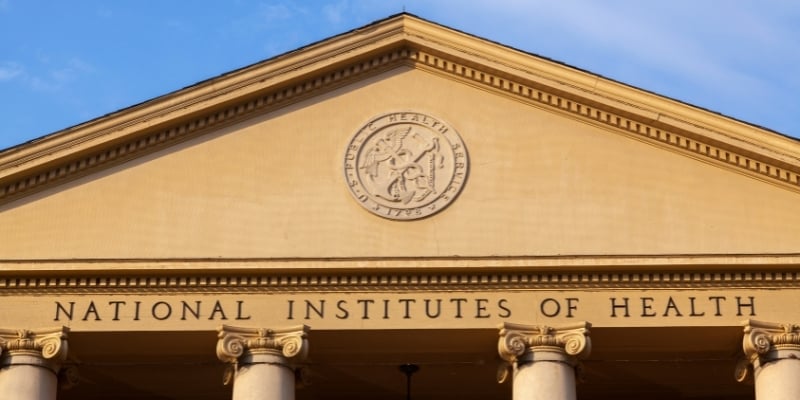There are 574 “Tribal entities” recognized by the United States Bureau of Indian Affairs. The members of these tribes live in most of the contiguous 48 states in the nation, from Washington to Florida and Maine to Arizona. The Bureau of Indian Affairs also recognizes the 228 tribes of Alaska Native people who live across Alaska’s yawning expanses, yet public health education that centers on investigating and addressing the needs of these diverse communities and cultures is still a “niche market,” says Jerreed Ivanich, PhD, assistant professor of community and behavioral health and in the Centers for American Indian & Alaska Native Health at the Colorado School of Public Health. But Ivanich is leading an effort to change that. He directs the Certificate in American Indian & Alaska Native Health program, an online offering that is directed toward helping students develop the skills necessary to meet the most important healthcare challenges for Native people.
The program, which was approved two years ago and began taking applicants from outside the CU system this summer, joins Johns Hopkins University and the University of North Dakota as one of just three in the nation with a focus on American Indian and Alaska Native (AI/AN) health, Ivanich said.
“We know that the health and well-being of Native people have historically and contemporarily been overlooked and under-resourced, lacking the innovations that everyone else has benefited from,” he said.
A framework for meeting the public health needs of American Indians and Alaska Natives
Ivanich said the required coursework focuses on the foundations of AI/AN health, social determinants of health, ethical considerations of research, and community and participatory research. Students can then choose from more than two dozen electives, from nutrition to public health administration. But the goal goes beyond giving students a piece of paper or helping them check a box on a resume, he stressed. The idea is to give them skills to address the specific needs of the communities they serve.
“It’s important that what we are giving students isn’t just a credential, but something tangible,” Ivanich said. “We want to address how we can make you a better public health scholar and practitioner and make sure that you walk away with something very practical.”
The certificate program is built on the “core pillars” of public health, Ivanich said, but with an eye toward helping students examine health challenges through “an indigenous lens.” For example, environmental health issues affect many populations, but indigenous people may face specific problems, such as mercury contamination in fish caught in polluted rivers and consumed in large amounts by people living in traditional communities. Toxins released to the air and water by uranium mining pose health threats to tribes in the Southwest.
Diverse communities, diverse needs
Those two examples illustrate the diversity of tribes and their healthcare needs and challenges, said Ivanich, who is a member of the Metlaktala Indian Community in southeast Alaska.
“We are not a monolithic group,” Ivanich said. He noted, for example, that opioid use is a healthcare problem in some AI/AN communities but not others. That emphasizes the need for scholarly
investigation that digs deeply into broad, aggregated data sets to analyze how the information applies to individual groups and the places where they live.
“There are unique linguistic, cultural, historical and policy factors that fuel any issue,” Ivanich said. “Indigenous communities also have different needs, resources and capacities. We always have to be mindful of that in doing this research.”
A recognition of unmet needs
Betsy Barron, a third-year Doctor of Public Health (DrPH) candidate in the Department of Community and Behavioral Health at ColoradoSPH, has completed the certificate program’s ethics and research courses. She called the work “incredibly practical. You learn how to apply what you read.”
Barron said, for example, that the research course led her to investigate the differences between processes followed by tribal Institutional Review Boards (IRBs), which govern the conduct and ethics of human research through the Indian Health Service (IHS).
Barron, a native Oklahoman and member of the Chickasaw and Choctaw nations, said that growing up she saw some American Indian families in her small-town community struggle with “going to IHS and not getting the help they needed or having access to insurance.” The experience stayed with her when she later settled on pursuing her public health education. She earned her Master of Public Health (MPH) degree from the University of Oklahoma Health Sciences Center, where her interest in tribal health heightened.
“I saw that there are a lot of things that can facilitate American Indians and Alaska Natives getting access to care, but we have to make sure there are people advocating for that,” Barron said.
Bringing skills to the community
After earning her MPH, Barron worked for two years at the Oklahoma Department of Mental Health and Substance Abuse Services on a project to prevent opioid overdoses. Her determination to find solutions to substance use disorders and unmet mental health needs has continued through her DrPH work – as has her commitment to using her education to serve tribal communities.
“I want to make sure that I spend my career helping Native people and improving the state of Native healthcare,” Barron said. “If I was afforded this incredible [educational] opportunity, I want to use it to the fullest.”
Having recently moved back to Oklahoma, Barron said she’s grateful to be able to continue her certificate work online and plans to finish it next spring.
“Completing the certificate from wherever I am is a huge benefit,” she said.
Barron praised the program for being both “flexible and applicable” as she pursues her career goals.
“I am continuing to learn and focus on communities in need,” Barron said. “It’s exciting to take my knowledge back and to share it.”






